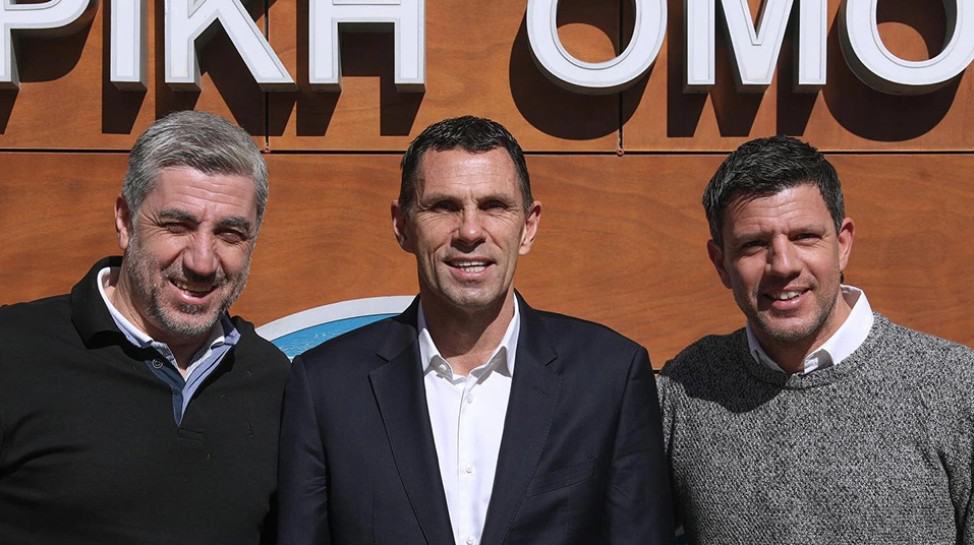Gus Poyet is etching his name into Greek football history as he attempts to become the next foreign manager to guide them to European Championship glory.
Two decades have passed since the legendary upset of Euro 2004, where unfancied Greece, under German coach Otto Rehhagel, shocked the world by claiming the title. Just twelve years later, Portuguese boss Fernando Santos steered them to the Euro 2012 quarter-finals.
However, that marked Greece’s last appearance on the Euros stage. Now, under the leadership of Poyet, the well-travelled Uruguayan midfielder turned manager, they stand just one victory away from a momentous return.

“It’s been far too long since Greece last graced the Euros,” declared Poyet, following a convincing 5-0 thrashing of Kazakhstan in the qualifying playoffs semifinal played in Athens on Thursday.
Next up for Poyet’s resurgent team is a nerve-wracking winner-takes-all clash against Georgia on Tuesday. The battleground? A packed 50,000-seater stadium in Tbilisi, where a raucous atmosphere is all but guaranteed.
“There’s no escaping the fact that 2024 marks the 20th anniversary of Greece’s historic Euro 2004 win,” acknowledged the Greek coach. “It’s a beautiful coincidence, and we’ll be giving it our all to try and replicate that achievement.”
Poyet’s Contract on the Line: A Win Could Mean a Summer Extension
However, Poyet’s future with Greece goes beyond just this crucial match. His contract is set to expire at the end of next week, but a victory on Tuesday could see him rewarded with an extension through the tournament in Germany this summer.
The prospect of a longer stay clearly appeals to Poyet. “If you ask me if I would like to stay in Greece, I will say yes, no doubt,” he declared in a recent interview in Ireland, where he has been linked with the vacant national team job.
A History of Short Stints: Can Poyet Buck the Trend?
Two years ago, Poyet’s appointment seemed like an unlikely gamble for Greece. His managerial career has been marked by a series of short stints with clubs in Chile, France, China, and Spain.
However, he’s not entirely unfamiliar with Greek football. Poyet did have a brief, six-month spell managing AEK Athens, though it ended unhappily with his firing in April 2016 on the eve of a cup semifinal.
There’s a precedent for foreign coaches succeeding in Greece. Fernando Santos, who coached three Greek clubs before taking the national team to the Euro 2012 knockout stage and the 2014 World Cup, is a prime example.
Unfortunately, the trend hasn’t always been positive. Santos’ successor, Claudio Ranieri, a renowned manager but new to Greece, lasted only a few months before being dismissed after a humiliating home defeat. Ironically, Ranieri went on to achieve remarkable success elsewhere, leading Leicester City to a stunning Premier League title.
Since Rehhagel’s arrival 23 years ago, the national team has rarely entrusted Greek coaches for extended periods. There have only been two brief tenures totalling 13 games. Poyet isn’t even the first Uruguayan to hold the job, with Sergio Markarián having a short stint in 2015.
Looking Ahead: Managing Expectations and a Potential Group Stage Reunion
Poyet understands the passionate nature of the Greek fans. “I know the mentality of Greek people,” he said, looking ahead to the crucial match against Georgia. “Sometimes they are too down, sometimes they are too high. We need to control the emotions.”
Victory on Tuesday would secure Greece’s return to the Euros and place it in a group with Cristiano Ronaldo’s Portugal, neighboring Turkey, and the Czech Republic.
More importantly for Poyet, it might lead to a coveted contract extension. “If you had given me the chance two years ago to have one match in order to go to the Euro,” he admitted, “I would take it.” The chance to potentially recreate Greece’s historic success and forge a longer-term future with the team now rests on his shoulders.

